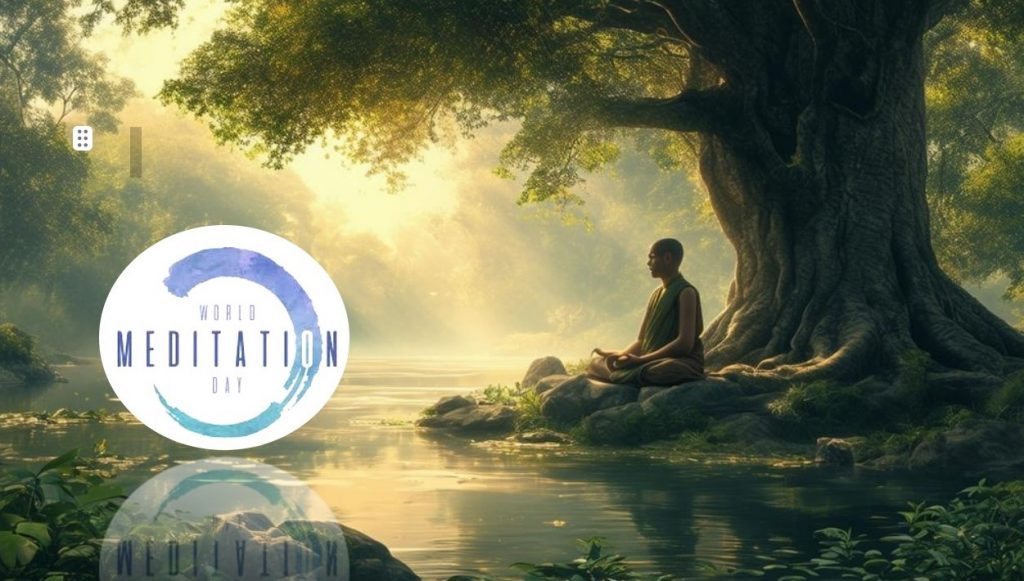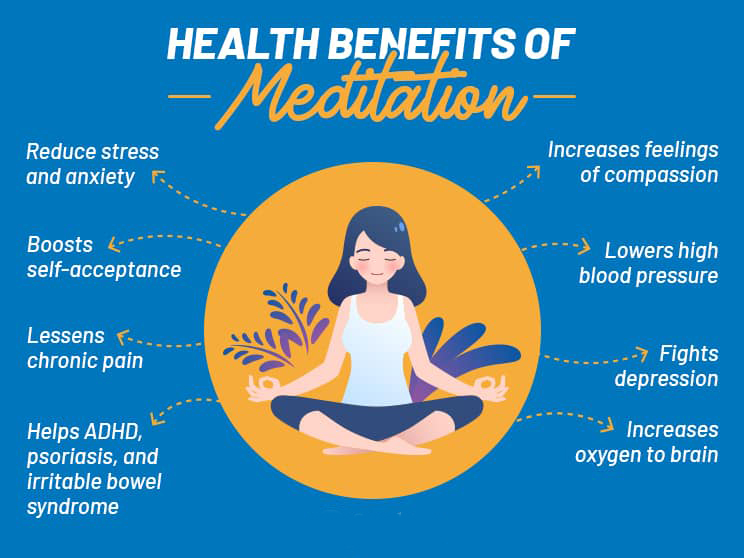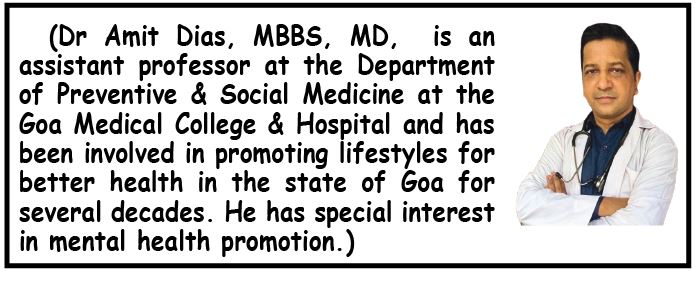Goa is abuzz with excitement as vintage bike and car owners, users, collectors and fans are decking […]

DO NOT HESITATE TO MEDITATE: THE SCIENCE OF SERENITY!
Jan 04- Jan 10 2025, MIND & BODY, HEART & SOUL January 3, 2025Q/A with Dr Amit Dias on UN World Meditation Day
Happy New Year to all our readers! As we embark on another journey around the sun, let us take a moment to reflect, center ourselves, and be mindful of mindfulness. The UN observes, World Meditation Day on December 21, a day dedicated to the transformative practice of meditation. “Do not hesitate to meditate,” says Dr Amit Dias, as he explains this science of serenity and emphasizes the profound impact of meditation on health and wellbeing in interview.
Goan Observer: Doctor, can you explain the reason why the UN declared December 31 as World Meditation Day?
Dr Amit Dias: The UN’s decision to mark December 21 as World Meditation Day aligns with the significance of the winter solstice, the longest night of the year in the northern hemisphere. This day symbolizes introspection and renewal, making it an ideal occasion to emphasize meditation’s role in fostering global peace, mental health and well-being. The declaration also highlights the need for holistic practices to combat rising mental health challenges globally and demystify meditation.
Q: Yes we do need to demystify it… what exactly is meditation?
A: Meditation is a mental practice that involves focusing attention and eliminating the stream of jumbled thoughts that may be crowding your mind.
Meditation and mindfulness induce a heightened state of awareness, focused attention and inner calm. Various studies demonstrate the practice can help relieve stress — as well as manage anxiety, reduce inflammation, improve memory and attention. Meditation techniques can vary, but the goal is universal: to promote mental clarity, emotional balance, and a deeper connection with oneself. There are several forms of meditation, each with unique methods and objectives. One can select what suits them the most.
Q: Can you elaborate on the various types of meditation?
A: Here are some of the types of meditation, and their objectives:
Mindfulness Meditation: Focuses on being present in the moment without judgment.
Transcendental Meditation: Involves silently repeating a mantra to settle the mind.
Guided Visualization: Uses imagery to guide the mind toward relaxation or goals.
Loving-Kindness Meditation: Cultivates compassion by focusing on sending goodwill to oneself and others.
Body Scan Meditation: Encourages awareness of physical sensations in the body.
Zen Meditation (Zazen): Rooted in Buddhist traditions, it involves sitting in specific postures and observing thoughts.
Yoga Meditation: Combines physical postures with meditative breathing and focus.
Each type suits different individuals, depending on their needs and personal preferences.
Q: What impact does meditation have on the mind, body, heart and soul?
A: Meditation offers a multitude of benefits that affect the mind, body, heart and soul:
Stress Reduction: Studies show that mindfulness meditation significantly reduces cortisol levels, the body’s primary stress hormone.
Improved Focus: Research highlights that meditation enhances attention and executive control.
Lowered Blood Pressure: Regular meditation reduces both systolic and diastolic blood pressure.
Enhanced Immune Function: Meditation practices, boost immune response and decrease inflammatory markers.
Anxiety and Depression Relief: Evidence demonstrates how meditation can alleviate symptoms of anxiety and depression.
Better Sleep Quality: Meditation improves insomnia and overall sleep patterns.

Q: How did the concept of meditation evolve?
A: Meditation has ancient roots. Early forms of meditation are believed to date back to prehistoric times, where it was practiced as a part of spiritual rituals. It developed in different regions…here are some of them.
Ancient India: The first written evidence of meditation comes from Hindu scriptures, the Vedas, around 1500 BCE.
Buddhism: Around 500 BCE, Siddhartha Gautama (Buddha) developed meditation as a core component of his teachings.
Western Adoption: In the 20th century, meditation entered the Western mainstream, propelled by figures like Swami Vivekananda and Maharishi Mahesh Yogi.
Modern Era: Today, meditation is globally recognized, with scientific research validating its benefits.
Q: What is the scientific evidence that meditation matters and improves the quality of life?
A: Meditation affects both the brain and body through several processes and there are several articles in peer reviewed scientific journals to support the benefits. Here are the possible processes through which it helps in improving the quality of life.
Neuroplasticity: It can fight the aging process. Meditation enhances the brain’s ability to form new neural connections, particularly in the prefrontal cortex, responsible for decision-making and emotional regulation.
Reduced Amygdala Activity: Manage stress, improves focus. It dampens the activity of the amygdala, the brain’s fear center, reducing stress responses.
Improved Neurotransmitters: It can boost positive thinking. Meditation increases serotonin and dopamine, hormones that elevate mood and promote relaxation.
Heart Rate Variability: It improves HRV, a marker of cardiovascular and emotional health.
Reduced Inflammation: Meditation lowers levels of pro-inflammatory cytokines, which are linked to chronic diseases.
Q: What are the long-term benefits of meditation?
A: Over time, meditation yields profound benefits:
Emotional Resilience: It strengthens coping mechanisms for life’s challenges.
Chronic Pain Management: Meditation can alter pain perception and reduce reliance on medication.
Slowed Aging: Studies suggest meditation lengthens telomeres, the protective caps on DNA, associated with aging.
Enhanced Relationships: It fosters empathy and improves interpersonal connections.
Cognitive Longevity: Meditation helps prevent age-related cognitive decline, a boon for mental acuity.
Q: What is the relationship between mental health and meditation?
A: Mental health and meditation are deeply intertwined. Regular practice can:
Mitigate symptoms of anxiety, depression, and PTSD.
Enhance emotional intelligence and self-awareness.
Build resilience against stressors and prevent burnout.
Promote overall psychological well-being by fostering a positive outlook.
Q: What is your message to our readers on World Meditation Day?
A: Do not hesitate to meditate. Understand the science behind serenity. Meditation is a timeless practice with relevance in today’s fast-paced world. On this World Meditation Day, I encourage everyone to integrate meditation into their daily lives through prayer. Start small — even five minutes a day can make a difference. As a collective, let us embrace meditation to cultivate inner peace, empathy, and global harmony. Remember, meditation is not just about quieting the mind; it’s about discovering the boundless potential within ourselves.
Let us honor this practice as a tool for healing, growth, and transformation. Whether you are new to meditation or an experienced practitioner, the journey inward is always worth taking.
















